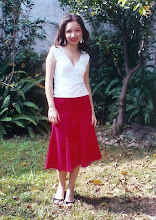Telč/Třebíč
Today I day-tripped to teeny-weeny UNESCO WHS villages/towns of Telč and Třebíč.
It was a bit of an adventure buying the bus ticket from the station at Brno, since no one there spoke English and though I tried to read things off the script in my phrasebook my pronounciation was so bad no one understood a single thing I said. But then of course one eventually concludes that simplest is best so you just approach the window and say nothing more than:
"Prosim Telč" or "Prosim Třebíč"
and in reply the very sharp ticket clerk gives me back a piece of paper with the numbers: 20 and 15:30 or 31 and 10:30 and you figure out it is bus number 20 at 3:30 p.m. or bus 31 at 10:30 a.m., so off I went.
Anyway, Telč is a very tiny village with not much of interest other than its main square, which you can see in under 1 hour, visit to the castle (zámek) included. Most of the morning, therefore, was just waiting around for the connections of the bus to Třebíč on the way back to Brno and the super short visit to the city center after the castle tour which lasted 45 minutes and the 20 extra I had left between the connections was more than sufficient to walk across the town square and take the necessary pictures.
I arrived in Třebíč by mid-afternon and submitted myself to a horribly/unnecessarily long tour of the UNESCO WHS Basilica of St. Procope before heading over to the old Jewish quarter which is one of the best preserved ones (and now very lavishly restored and cleaned up) of its kind in this country, and where for the first time, I think, I saw what appeared to be Roma gypsies, who have since (i.e. after the Jewish WWII deportations) settled in this quarter of town. I was rather curious to catch a glimpse of them since I'd heard a lot about them so far, and found them to look a bit like some of the peoples of Mexico, especially the little girls, with beautiful dark hair, large brown eyes and bronze skin.
The Jewish cementery was interesting, all the captions were in German even when the names had Czech derivations. No surprises there: Bohemia was part of Austria-Hungary, as you know, until the end of WWI.

No comments:
Post a Comment